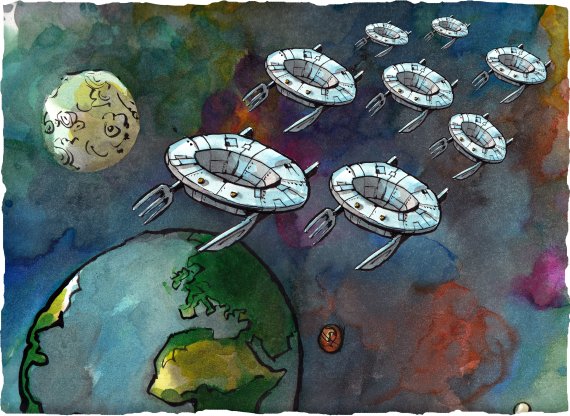text Albert Sikkema illustration Henk van Ruitenbeek
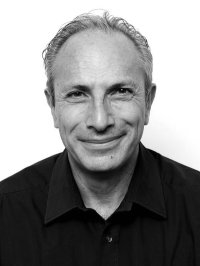
Lawrence Haddad
Director of the Global Alliance for Improved Nutrition (GAIN)
‘GAIN wants to encourage the consumption of healthy food around the world, especially among the most vulnerable groups. The key thing is to make it uncomfortable for governments to do nothing to stop hunger. If there’s a lot of hunger and malnutrition, there is a tendency to see it as normal or a “curse”. But it is neither. Hunger and malnutrition are the result of choices about how we use our scarce resources. You can choose to use those resources differently. The media, civil society, you and I, we all need to keep this issue on the agenda and come up with facts about the extent, spread and consequences of hunger and malnutrition. We also have to help governments and companies combat hunger with effective strategies, solutions and policy rules.’

Ertharin Cousin
Former director of the World Food Programme
‘As the director of the UN’s World Food Programme, I worked with my colleagues to help 80 million people a year get better access to food. Now that I’m an academic at Stanford University, my role is that of an information broker. I work on interventions that can create sustainable development and sustainable food systems. I see a key role for joint actions. You need all the parties on board in sustainable development: the local community, local and national administrators, international organizations, companies, scientists and NGOs. This doesn’t just apply to developing countries, it also applies to countries like the United States. The US also has communities that don’t have access to healthy food and who live in “food deserts”. Sometimes healthy food might be available but unaffordable for these communities. What is more, people don’t always know the difference between healthy and unhealthy food, so education is also an important element in achieving sustainable food systems.’
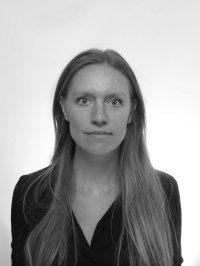
Marijn Faling
PhD candidate in the Public Administration and Policy group at Wageningen
‘My doctoral research focuses on policy entrepreneurs — people or organizations that sell innovative policy to governments. I’m looking at climate-smart agriculture, i.e. policy that is aimed at improving food security and responding to climate change. Policy entrepreneurs operate in a field where different parties and stakeholders have influence. For example, the ministry in charge of agriculture will have a different view of climate-smart agriculture than the ministry responsible for the environment, and NGOs have different interests to companies. How can you get them all agreeing? A crucial aspect is that policy entrepreneurs can frame the issue in different ways. They need a range of different messages to sell the same idea to different parties. In the fight against hunger, we often look first at technological solutions such as artificial fertilizer and better seed, but you also need a good institutional environment that lets farmers practice sustainable agriculture. Governments often don’t have the resources to develop policy for this. That is when policy entrepreneurs can play a role in limiting hunger.’
Arthur Mol
Rector magnificus at Wageningen University & Research
‘A survey showed that WUR’s teaching and research are making a significant contribution to 12 of the 17 sustainable development goals. We work on food security, clean drinking water, sustainable cities, health, partnerships and so on. Collaboration is crucial for us. We can’t utilize our knowledge to make any practical progress on the sustainable development goals unless we collaborate with public and private parties that implement our know-how and recommendations in the field. We need others to achieve something. For example, to curb the environmental impact of pesticides in agriculture, you need an effective agency for the approval, registration and monitoring. WUR has advised Ethiopia on this and I visited the monitoring agency’s national office. It was an untidy room with stacks of paper where nothing was recorded on the computer and where they were severely understaffed. That’s one of the institutions you need to build up in order to achieve healthier food and cleaner drinking water. To do that, we need to not just collaborate but also learn how to build up institutions in countries like Ethiopia.’
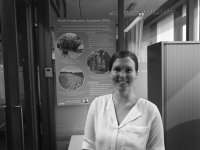
Linda Veldhuizen
Postdoc in the Plant Production Systems chair group at Wageningen
‘I am the Sustainable Agriculture & Food Systems network coordinator for a UN organization that focuses on food security and better diets. I work on the Missing Middle concept, in which we try to bridge the gap between production and consumption and between global goals and local conditions. An important step in this transformation is changing people’s behaviour. If people switch en masse from an unhealthy diet to a healthy one, this can change our food system for the better and let us beat obesity. Another important step is encouraging local value chains in developing countries that can improve diets and living conditions.’
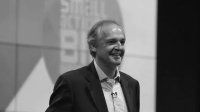
Paul Polman
CEO of Unilever
‘Companies need to change the way they look at profitability and collaboration with governments and NGOs, as in many areas wastage now costs more than sustainable behaviour. Deforestation and climate change, for instance, are more costly than the sustainable alternatives. That is creating a market for sustainable development. For Unilever, sustainable food production is already the most important source of income. We are buying more and more products from small-scale farmers for a fair price, whereby we regularly collaborate with local partners. But Unilever can’t achieve sustainable palm oil production all on its own; we need international coalitions for that. A crucial question is whether the financial sector will invest in this. Investors should put their money in companies that deal responsibly with resources. And regional development banks should concentrate on covering the risks for companies that want to invest in sustainable development rather than financing more development projects.’

